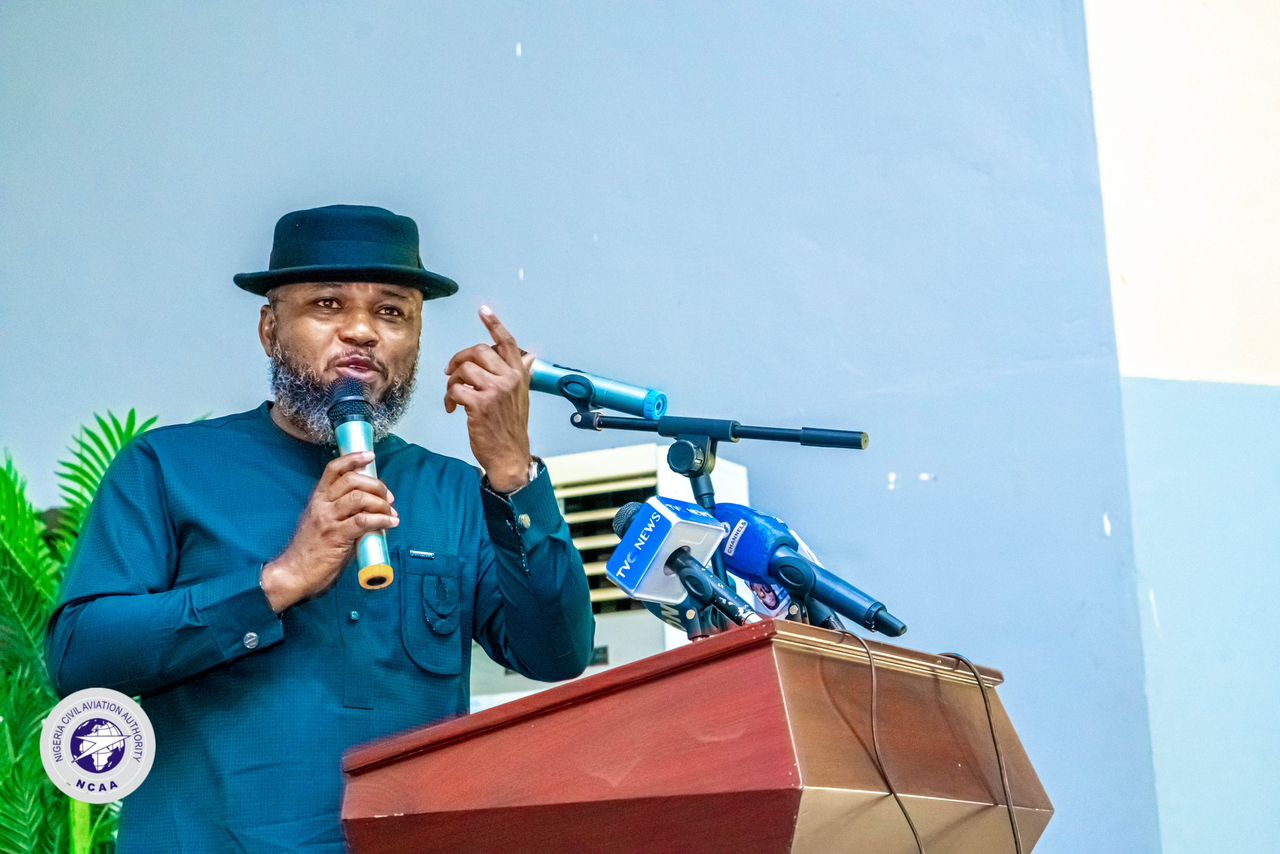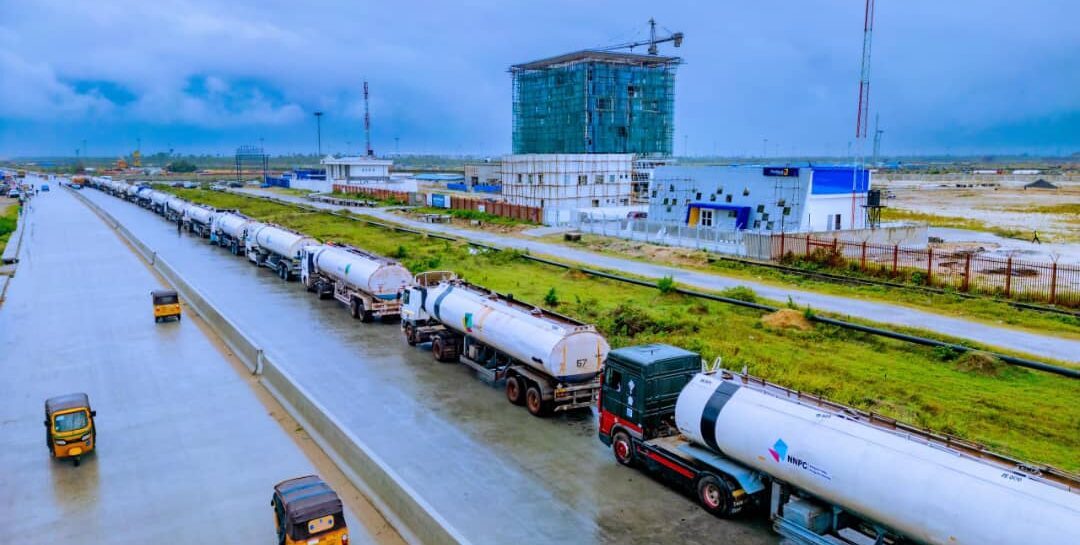For Prince DapoAbiodun, Governor of Ogun State, governance has been as much about vision as it has been about breaking long-standing barriers. He reflects on his journey steering the affairs of a fast-developing state, highlighting the uphill battle of introducing reforms in a system resistant to change, among others. James Sowole provides the excerpts:
Ogun State shares border with Lagos, Nigeria’s commercial nerve center. How has this geographical positioning influenced your vision for Ogun State?
| O |
gun State’s proximity to Lagos is not just a geographical coincidence—it is a strategic asset that we have deliberately leveraged. Being the immediate neighbor to Lagos places us in a unique position to benefit from spillover economic activities, urban migration, and industrial expansion. We often describe ourselves as what New Jersey is to New York: a place of economic significance, serenity, and opportunity. Ogun is about four times the landmass of Lagos, offering vast untapped space for development, investment, and habitation. Our vision has been to harness this advantage and position Ogun as the natural expansion zone for Lagos, a role we have begun to play effectively by improving infrastructure, promoting ease of doing business, and expanding our industrial and logistics capacities.
Since taking office in 2019, how have you turned this strategic location into tangible economic opportunities for the people of Ogun State?
From the moment we assumed office on May 28, 2019, our approach has been proactive and structured. We developed and began implementing our administration’s ISEYA development agenda—Infrastructure, Social Welfare, Education, Youth Empowerment, and Agriculture. Recognizing that our location is a prime economic magnet, we prioritised infrastructure to connect Ogun’s towns and cities to Lagos and neighboring states. We improved major arterial roads, rehabilitated rural roads to ease access to farmlands, and initiated urban renewal projects. Moreover, we created an environment conducive for investors—reducing bureaucratic bottlenecks, facilitating land acquisition, and ensuring security. As a result, Ogun now hosts some of Nigeria’s largest industrial estates and continues to attract multinational corporations, logistics operators, and real estate developers.
Ogun State is now known for major infrastructure projects. Can you highlight key projects and how they fit into your broader development plan?
Absolutely. Infrastructure is the backbone of any serious economy. We have undertaken a comprehensive infrastructure renewal across all zones of Ogun State—Ogun Central, Ogun East, and Ogun West. One of our flagship projects is the Atan-Lusada-Agbara Road, which leads into one of West Africa’s largest industrial hubs. This road had been neglected for years, but we took it on because it directly affects manufacturing, logistics, and employment. We’ve also worked on intra-city roads like Kuto Bridge in Abeokuta, Ijebu-Ode-Epe Expressway, and Sagamu Interchange. However, infrastructure is not just about roads. Our vision includes a multi-modal transport system that integrates road, rail, air, and waterways. This approach ensures that Ogun State is not only accessible but competitive in attracting investment.
You mentioned multi-modal transport. Ogun is said to be the only state in Nigeria accessible by all four modes of transportation. How did you achieve this?
This is one of the highlights of our tenure that I am particularly proud of. Accessibility is key to economic development, and we set out with a clear plan to make Ogun State the most connected sub-national entity in Nigeria. Road access was foundational, but we moved beyond that. On rail, we collaborated with the federal government to ensure Ogun towns are integrated into the Lagos-Ibadan Standard Gauge Rail line. Our people can now board a train in Lagos and stop at stations within Ogun—this supports commuters and goods movement. We also invested in reviving water transport on inland waterways, connecting riverine communities. The crowning jewel is our airport—the Gateway Agro-Cargo International Airport—which brings air connectivity to our doorstep. Together, these make Ogun the only state you can enter through road, rail, air, or water.
The new airport has attracted significant attention. What makes the Gateway Agro-Cargo International Airport unique?
The Gateway Agro-Cargo International Airport is not just an infrastructure project—it is a transformative economic engine. It is the best constructed and most well-equipped airport in Nigeria, built to international standards. We envisioned this airport as a logistics and export hub, particularly for agro-based produce and light manufacturing. It has state-of-the-art facilities including Category 1 landing equipment, a long runway to accommodate large cargo planes, and customs clearance infrastructure. It is located strategically in Iperu-Remo, between Lagos and Ogun industrial belts, providing a quicker and more efficient alternative to the congested MurtalaMuhammed International Airport. What sets it apart is that it was conceptualized, financed, and delivered by a state government within one administration. It is a bold statement of what sub-national governments can achieve with vision and discipline.
How does this airport translate to job creation and economic impact for Ogun State residents?
The economic potential is massive. First, the construction phase alone created thousands of jobs for engineers, artisans, and suppliers. Now, in operation, it opens up several layers of employment—aviation, logistics, customs, warehousing, ground services, hospitality, and more. The airport will also catalyze agro-processing zones and special economic clusters. For example, farmers can now export perishables directly from Ogun without going through Lagos. This boosts earnings and encourages more youth participation in agriculture. We also foresee the growth of a new aerotropolis around the airport—a city within a city—bringing in investors, developers, and tourists. Our goal is not just to fly planes but to create a value chain that stimulates the entire economy.
Agriculture appears to be a major focus of your administration. What specific steps have you taken to revamp the sector?
Agriculture is at the core of our development strategy—not just for food security, but also for jobs, revenue, and industrial linkages. We launched several flagship initiatives such as the Ogun State Anchor Borrowers Programme, which supports smallholder farmers with inputs and financing. We’ve distributed over one million seedlings, fertilizers, and trained youths through our Agripreneurship Scheme. More importantly, we’ve built strategic partnerships with private sector players and foreign investors. Our farmers’ associations are now better organized, and we’ve established agro-processing centers to reduce post-harvest losses. We also identified livestock, aquaculture, cassava, and rice as priority value chains, and we are facilitating access to land and markets for interested players.
Nigeria still imports a large percentage of its dairy. What is Ogun’s plan to bridge this gap?
You are right. Nigeria consumes about 1.6 billion litres of milk annually, and shockingly, 60 to 70 percent of that is imported, mostly in powdered form. This is a huge economic leakage and a lost opportunity. Our administration is determined to reverse this. We are deliberately targeting genuine dairy investors—not just those seeking import waivers—but those ready to invest in large-scale milk production, animal husbandry, and cold chain logistics. Ogun has vast pastureland, water resources, and proximity to markets. We are working to create dairy clusters where investors can build integrated operations from breeding to processing. This will not only reduce imports but also boost nutrition, create jobs, and develop local expertise in dairy management.
Can Nigeria truly become self-sufficient in milk production? What gives you that confidence?
I strongly believe Nigeria can become self-sufficient in milk production, and Ogun will be at the forefront of that movement. The international price of milk is around $4,000 per ton, making it more valuable than crude oil. If we take it seriously, the dairy industry can become a major foreign exchange earner. I draw inspiration from countries like Qatar. Despite being a desert nation, Qatar achieved milk sufficiency within six months through the intervention of a company called Baladna. If they could do it in a harsh environment, why can’t we in Nigeria, where we have arable land, water, and manpower? All we need is the right vision, infrastructure, and policies—and that is exactly what we are putting in place in Ogun State.
Ogun State has long been an industrial hub. What are you doing to retain that status and ensure sustainability of industrial growth?
Ogun State is proudly the industrial capital of Nigeria. Over 75 percent of Nigeria’s manufacturing companies with factories outside Lagos are located here. But we knew from the beginning that retaining this status would not happen by accident. It requires deliberate planning and forward-thinking policies. We established the Ogun State Investment Promotion and Facilitation Agency (OGUNINVEST) to act as a one-stop shop for investors. We created an industrial-friendly tax regime, prioritized security, and aggressively rehabilitated roads leading to industrial estates. Importantly, we’ve introduced power intervention schemes to support industrial zones, and we are working on dedicated industrial feeders for reliable electricity. We’ve also aligned our education policies to produce skilled labor for these industries. Sustainability comes from planning, and we are planning 30 years ahead, not just for the next election.
With all the infrastructure, agriculture, and industrial plans, how are you ensuring youth inclusion and empowerment?
Youth are the bedrock of our development strategy. Our administration created the Ogun State Job Portal, one of the first of its kind in Nigeria, which connects employers and job seekers in real time. Over 150,000 youths have registered and many have found gainful employment through it. In agriculture, we introduced the Youth in Agribusiness Project, training and financing thousands of young agripreneurs. Our TechHubs across the state are grooming a new generation of digital innovators. Through our Ogun Digital Economy Infrastructure Project, we are laying fiber optic cables across the state to create a digital economy that will support startups and remote work. The youth are not just beneficiaries—they are partners in progress.
You’ve emphasised private sector partnerships. How do you ensure transparency and accountability in these relationships?
We operate on the principle of Public-Private Partnership (PPP) with purpose. Every agreement we sign is subjected to rigorous due diligence, legal vetting, and value-for-money analysis. We’ve set up a PPP Office to coordinate these partnerships and ensure compliance with global best practices. Transparency is our watchword. We publish contract information, and we insist on local content in project execution. Moreover, we monitor and evaluate every project from inception to delivery. Our people deserve nothing less than full accountability, and I have made it clear to every commissioner and partner: no shady dealings will be tolerated. This has earned us trust and credibility in the business community.
What are some of the biggest challenges you’ve faced as governor, and how have you overcome them?
Leadership comes with its challenges, and I do not shy away from acknowledging them. One of our biggest challenges was the initial resistance to change, especially in public service and infrastructure delivery. There were entrenched interests that thrived in the old order. But we approached things through dialogue, capacity building, and performance-based incentives. Another challenge was funding, especially during the COVID-19 pandemic and periods of reduced federal allocation. But we introduced prudent financial management, blocked leakages, and improved internally generated revenue. We also dealt with infrastructure decay, security concerns, and the need to rebrand the state. Today, Ogun is on a steady path of transformation, and the people can see it.
Ogun is a diverse state with multiple ethnic and religious groups. How have you fostered unity and inclusiveness in governance?
Inclusivity is not an afterthought—it is a fundamental policy of our administration. Our cabinet, boards, and programs reflect the diversity of Ogun State. We’ve appointed qualified individuals across the three senatorial districts, religious groups, and gender lines. We actively engage traditional rulers, religious leaders, youth groups, and civil society in governance. Our town hall meetings are not photo ops—they are platforms for genuine feedback and policy co-creation. We also observe faith equity, supporting Christian, Muslim, and traditional religious events equally. By listening to all and favoring none, we have built trust, unity, and peace across the state.
Security is a national concern. How secure is Ogun State, and what is your administration doing to improve it?
Security is non-negotiable. Without it, no development can take place. We established the Amotekun Corps in line with the Southwest Governors’ initiative and equipped them with modern gadgets and training. We also supported the Nigeria Police with patrol vehicles, communication equipment, and infrastructure; for instance, at the Police Command Headquarters at Eleweran. We’ve introduced community policing and reactivated the Ogun State Security Trust Fund to enable private sector participation. Today, Ogun is among the safest states in Nigeria. Our industrial zones, borders, and rural communities are under tighter surveillance than ever before. The safety of lives and property remains our sacred duty.
How would you assess your relationship with the Federal Government and how has it helped Ogun’s development?
Our relationship with the federal government is collaborative and respectful. I believe in constructive federalism—working together for national progress while asserting our unique strengths as a state. Under President Bola Ahmed Tinubu’s Renewed Hope agenda, we’ve seen stronger alignment in priorities—especially in infrastructure, agriculture, and economic diversification. Ogun has benefitted from federal interventions like the Lagos-Ibadan Railway, the Ijebu-Ode-Mojoda Road, and the MSME grant schemes. We also collaborate with federal agencies like NAFDAC, NIS, NNPC, and Customs to support industries and ease doing business. The airport project even attracted interest and support from federal authorities due to our transparent execution. This synergy is essential, and we’ll continue to nurture it.
What are your administration’s priorities for the next phase of governance in Ogun State?
Our next phase will focus on consolidation and acceleration. We will consolidate on our gains in infrastructure, particularly the Gateway Agro-Cargo Airport and industrial corridors. We’ll accelerate the completion of major road and housing projects. Youth development will remain a priority through more tech hubs, sports programs, and creative industry support. In agriculture, we’re moving to value addition—processing, packaging, and export. Health and education sectors will see digital upgrades, more personnel, and infrastructure expansion. We are also prioritizing climate resilience and green economy initiatives, including solar energy and waste recycling. Ogun is poised to be a smart, inclusive, and resilient state, and we are not slowing down.



